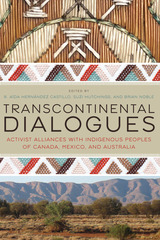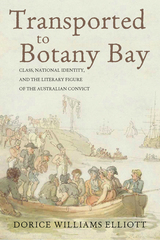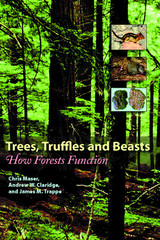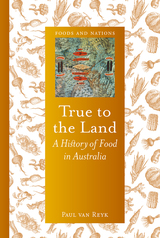6 start with T start with T


Born in 1916 at the northern end of New Zealand’s South Island, the teenaged Robert William Lane became obsessed with the singing and expressive yodeling of country music’s Jimmie Rodgers. By the 1940s, his obsession and subsequent focus on his own guitar playing, singing, and yodeling led him to achieve musical stardom as Tex Morton, master showman and influential progenitor of Australian country music. Tex Morton: From Australian Yodeler to International Showman offers the first full-length biography of this country music phenomenon from down under.
“From the time he first left the security of his home and set out to discover the world, life was a continual journey for Tex Morton,” Smith writes in chapter 1. And it was: Beginning with Morton’s early life and chronicling his burgeoning career and ultimate stardom, Smith’s study showcases Morton’s multi-faceted creative endeavors over the years, from showman and sharpshooter to hypnotist and academic. His talents took him all over the world, from Australia and New Zealand and countries throughout Asia to the United States, Canada, and England. Smith’s carefully constructed narrative captures the nuance of a versatile yet driven, flawed yet talented figure who ultimately became both an influential country artist and an entertainer of international standing over the course of an almost fifty-year career.
An important contribution to music history scholarship, this volume not only establishes Morton’s significance in the history of Australian country music, but it also draws deep connections between Morton’s Australasian influence and country music in the United States, exploring Morton’s legacy in the wider context of the genre worldwide. Complete with a comprehensive discography of Tex Morton’s works, Smith’s in-depth biography claims for Morton his rightful place as a major founding figure in the history of Australian country music.

This volume presents a set of pieces that do not take the usual political or geographic paradigms as their starting point; instead, the particular dialogues from the margins presented in this book arise from a rejection of the geographic hierarchization of knowledge in which the Global South continues to be the space for fieldwork while the Global North is the place for its systematization and theorization. Instead, contributors in Transcontinental Dialogues delve into the interactions between anthropologists and the people they work with in Canada, Australia, and Mexico. This framework allows the contributors to explore the often unintended but sometimes devastating impacts of government policies (such as land rights legislation or justice initiatives for women) on Indigenous people’s lives.
Each chapter’s author reflects critically on their own work as activist-scholars. They offer examples of the efforts and challenges that anthropologists—Indigenous and non-Indigenous—confront when producing knowledge in alliances with Indigenous peoples. Mi’kmaq land rights, pan-Maya social movements, and Aboriginal title claims in rural and urban areas are just some of the cases that provide useful ground for reflection on and critique of challenges and opportunities for scholars, policy-makers, activists, allies, and community members.
This volume is timely and innovative for using the disparate anthropological traditions of three regions to explore how the interactions between anthropologists and Indigenous peoples in supporting Indigenous activism have the potential to transform the production of knowledge within the historical colonial traditions of anthropology.

Literary representations of British convicts exiled to Australia were the most likely way that the typical English reader would learn about the new colonies there. In Transported to Botany Bay, Dorice Williams Elliott examines how writers—from canonical ones such as Dickens and Trollope to others who were themselves convicts—used the figure of the felon exiled to Australia to construct class, race, and national identity as intertwined.
Even as England’s supposedly ancient social structure was preserved and venerated as the “true” England, the transportation of some 168,000 convicts facilitated the birth of a new nation with more fluid class relations for those who didn’t fit into the prevailing national image. In analyzing novels, broadsides, and first-person accounts, Elliott demonstrates how Britain linked class, race, and national identity at a key historical moment when it was still negotiating its relationship with its empire. The events and incidents depicted as taking place literally on the other side of the world, she argues, deeply affected people’s sense of their place in their own society, with transnational implications that are still relevant today.

Because today's decisions are tomorrow's consequences, every small effort makes a difference, but a broader understanding of our environmental problems is necessary to the development of sustainable ecosystem policies. In Trees, Truffles, and Beasts, Chris Maser, Andrew W. Claridge, and James M. Trappe make a compelling case that we must first understand the complexity and interdependency of species and habitats from the microscopic level to the gigantic. Comparing forests in the Pacific Northwestern United States and Southeastern mainland of Australia, the authors show how easily observable speciesùtrees and mammalsùare part of a complicated infrastructure that includes fungi, lichens, and organisms invisible to the naked eye, such as microbes.
Eminently readable, this important book shows that forests are far more complicated than most of us might think, which means simplistic policies will not save them. Understanding the biophysical intricacies of our life-support systems just might.

READERS
Browse our collection.
PUBLISHERS
See BiblioVault's publisher services.
STUDENT SERVICES
Files for college accessibility offices.
UChicago Accessibility Resources
home | accessibility | search | about | contact us
BiblioVault ® 2001 - 2024
The University of Chicago Press









